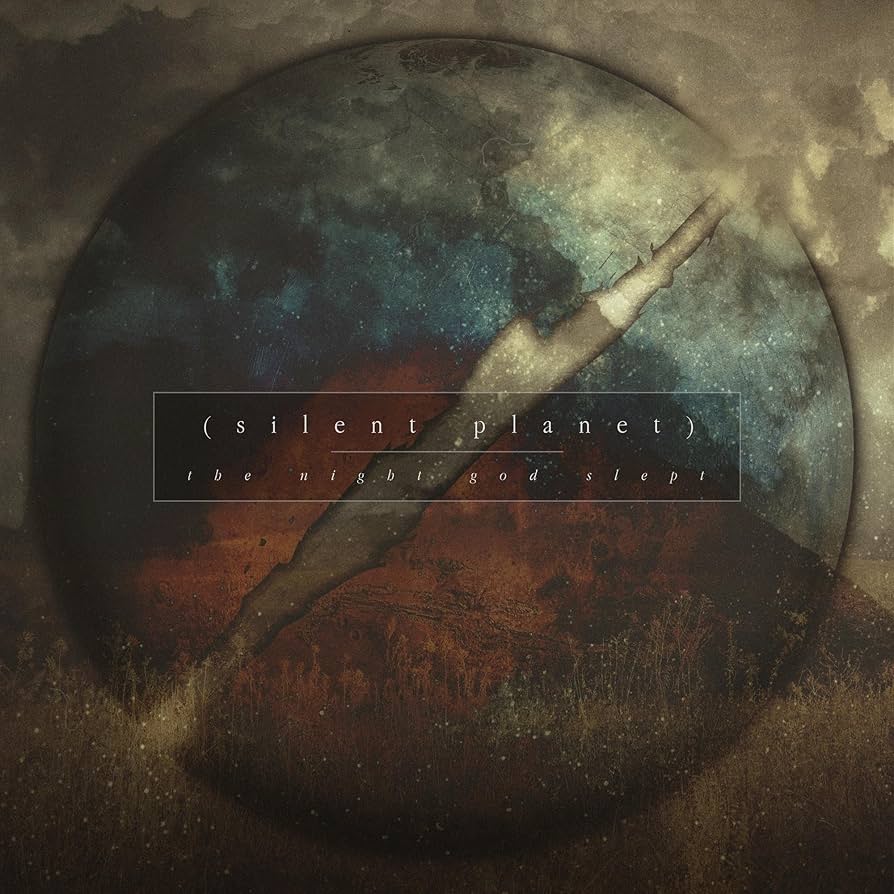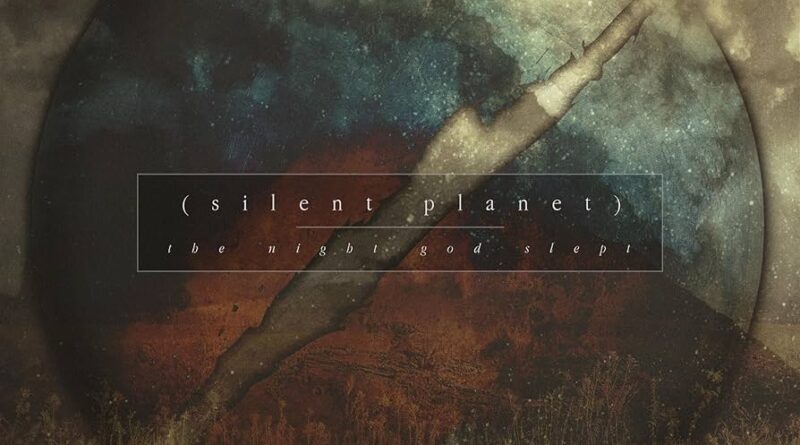HEAVY MUSIC HISTORY: The Night God Slept – Silent Planet
2014 was a busy year for rock music, which saw releases from both established musicians such as FOO FIGHTERS and SLIPKNOT and debut releases from the likes of 5 SECONDS OF SUMMER and BABYMETAL. With all these releases, it’s obvious that a few hidden gems would be overlooked by casual rock fans. One of those gems is The Night God Slept, the debut album by the Californian metalcore band SILENT PLANET.
After releasing two EPs – Come Wind, Come Weather in 2012 and lastsleep (1944 – 1946) in 2014 – SILENT PLANET released their debut album in November 2014. What makes The Night God Slept unique are that the songs are told from the perspectives of women throughout history. Explaining why this is the case, vocalist Garret Russell said: “We see a lot of cultural misogyny in music, certainly in heavy music. Women in heavy music are caught in a binary – they are either written as a ‘good’ moral, ideal woman or a ‘bad’ sinful, tempting woman – but almost never written from their own perspective. What links all of the women in our songs is that they ultimately have to make difficult decisions under the systemic oppression of their coercive ruling forces.”
When listening to the album, it is clear that there has been a lot of care taken with the lyrics, which is something that is evident throughout SILENT PLANET‘s discography. The Night God Slept is also the first part of a trilogy that also comprises of 2016’s Everything Was Sound and 2018’s When The End Began.
Even though it is only 32 minutes long, The Night God Slept is an impactful album that takes a lot of inspiration from both real life and the Bible. Yet SILENT PLANET are not a Christian band, although some of the members are Christians, because their lyrics speak to everyone. The first song on the album, The Well, is inspired by a story in the Bible about a conversation that Jesus has with a Samaritan woman. The lyrics introduce the Seven Sisters, who are the protagonists of the album.
Whilst the production on the album is raw and slightly rough in places – the band would later release a redux version in 2020 with better production and vocals – this doesn’t affect the album’s quality. In fact, it makes the songs sound all the more urgent. XX (City Grave) deals with modern day sex trafficking in America and the culture of pornography and misogyny. Whilst the production does unfortunately mean that the instruments overwhelm the vocals at some points, it is an extremely powerful song that is sadly more relevant today than ever before.
I Drowned In The Desert is the first of two calming interludes (the second one being the ninth track To Thirst For The Sea) before transitioning into Native Blood, a song that is told through the eyes of a young girl and is about the mistreatment of Native Americans, which is a topic that is not spoken about in music, let alone metalcore music. It has inspired a lot of conversations since its release.
Whether it is telling the amazing true story of Marguerite Rouffanche, a French woman who was the only survivor of a massacre in a church in Oradour-sur-Glane in June 1944 (Tiny Hands (Au Revoir)), imagining a dialogue between Mary and Jesus whilst he is on the cross (Firstwake), or the story of a mother and her child being ripped apart by rubble in the aftermath of Hiroshima (Darkstrand (Hibakusha)) – which also includes some synth-esque instruments at the start – the band are consistent with their lyricism.
Where they fall down a bit is in the sound. Sonically, the album sounds a little similar, with only a few instances of variety. However, the album was released in 2014. The majority of rock music – especially metalcore – wasn’t as experimental back then, and as this was SILENT PLANET‘s debut album, they probably didn’t want to rock the boat too much.
First Mother (Lilth) is a standout song on the album, which imagines a conversation between Lilith, Eve, and Adam, whilst also exploring the binaries that society places on women – either they are good and pure or bad and sinful, which is not possible as humans are multifaceted.
Closing song Depths II is the sequel to Depths, which is on SILENT PLANET‘s EP Come Wind, Come Weather. Written after he was diagnosed with bipolar disorder, Garrett Russell says in a track-by-track interview that it was inspired by a dream that he had. The lyrics tell the story of the dream, and it reads like a poem. It is a fantastic closing song and one that is a highlight of the band’s overall discography.
When it was released, The Night God Slept earned favourable reviews. Writing for HM, Collin Simula said: “It’s musical, challenging, heavy and truly surprising.” As they have released four more albums since 2014, SILENT PLANET unfortunately don’t play a lot of songs from The Night God Slept, although they did re-introduce Native Blood on their recent North American headline tour.
The Night God Slept is a fascinating debut album. By shining a light on women and their struggles, SILENT PLANET break the mould when it comes to lyrics. Although it is not that exciting sonically, the lyrics more than make up for that, as they highlight the complexities of women and humanise them, despite societal expectations emphasising the opposite. It is a timeless album that is as relevant now a decade on. In a time where the violence and dehumanisation of women and girls is sadly more prevalent, The Night God Slept is an album that gives hope by not only shedding a light on ordinary women throughout history, but also showing that empathy is key to changing society.

The Night God Slept was originally released on November 10th, 2014 via Solid State Records.
Like SILENT PLANET on Facebook.

